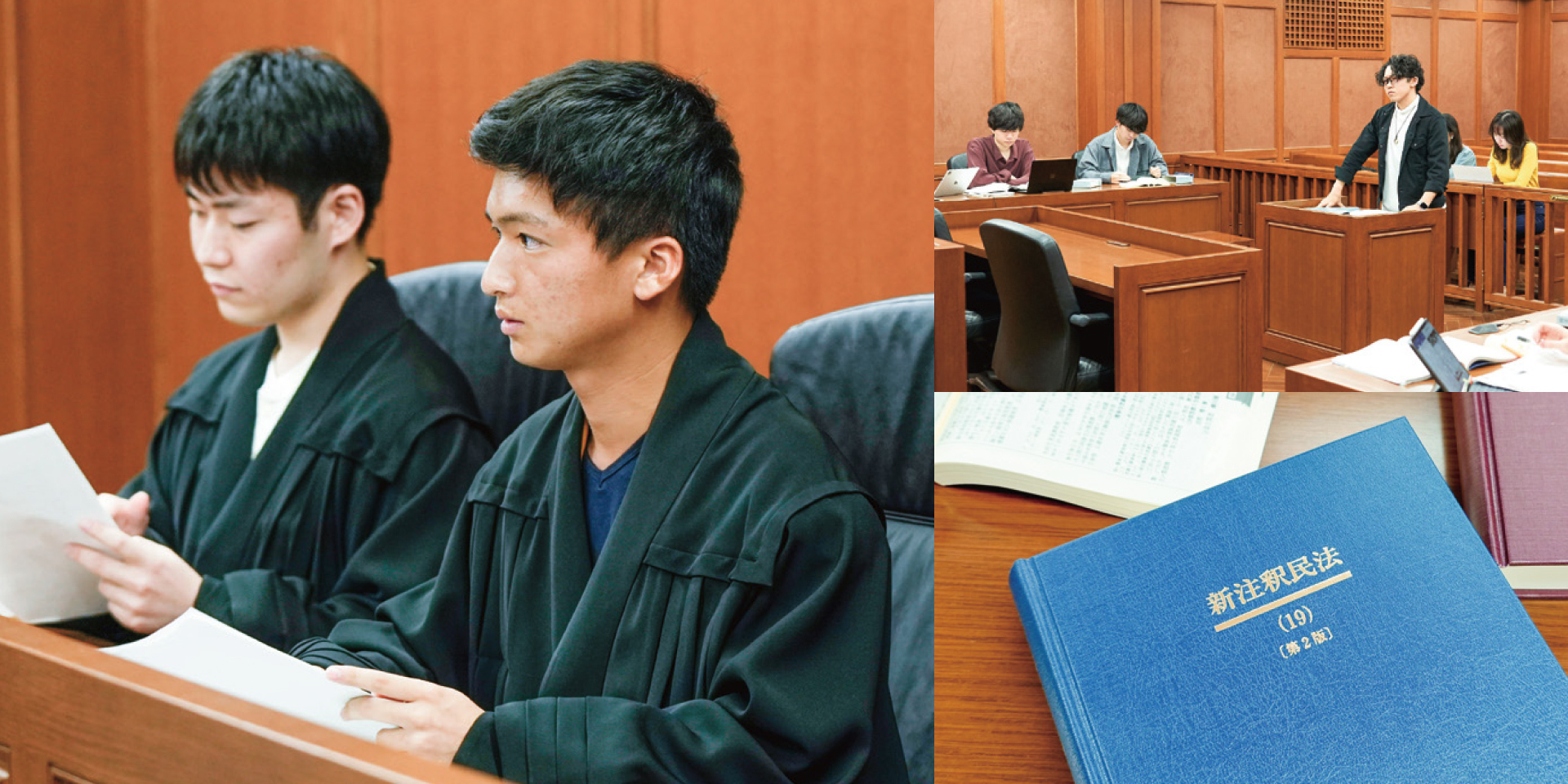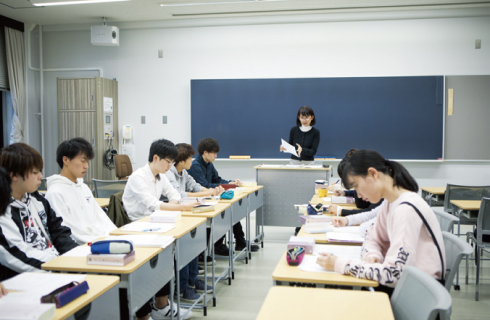Department of Juridical Studies
Department of Juridical Studies
Department of Current Legal Studies
Department of Global Legal Studies
Department of Political Science

Training human resources capable of contributing to society through their legal mindset
The Department of Juridical Studies' systematic step-by-step curriculum ensures that students can smoothly acquire a legal mindset: the ability to objectively analyze contemporary social issues and use impartial, logical thinking that will lead to solutions. The Department offers an extensive range of courses, from small introductory classes to advanced seminars that explore cutting-edge fields. Our flexible curriculum allows students to study in depth through self-directed learning, opening up a broad range of future career paths.
Department of Juridical Studies
Key Features of the Department of Juridical Studies
Program Structure
Topics
Educational Objectives and Human Resource Development Objectives
Admission Policy
Key Features of the Department of Juridical Studies
Point 01
Choose the course model that suits your career path
It can sometimes be hard to find the courses that best fit your interests among the extensive curriculum of the Department of Juridical Studies. We have therefore prepared course models suited to various career paths, ranging from the legal profession to corporate employment, so that you can study with a sense of purpose. We have an excellent track record when it comes to the Japanese Civil Service Exam. It is also possible to obtain teaching certification (elementary type-2, junior high, and senior high).
Point 02
Establishment of a legal professional course for students aiming to acquire legal qualifications
Legal reforms of Japan’s law school system have been passed, cutting the minimum time taken to qualify as a legal professional after entering university from eight years to six. Students of the Faculty of Law may graduate early after three years and take the bar examination in their second year after entering the Graduate School of Law. They may qualify as a legal professional after completing a year of legal training. Meiji Gakuin University has also concluded a partnership agreement with the graduate schools of law of Waseda University, Chuo University, Keio University, Meiji University, Chiba University, and Tokyo Metropolitan University*. The Department has established this course to meet the needs of students interested in pursuing a career as a legal professional. Those wishing to take the legal professional course may apply for entry in their second year if they choose. (The pre-entry program begins in the fall semester of the first year.) *Students may also choose a graduate school of law with which the Department has not concluded an agreement.
Point 03
Extra learning support from young scholars serving as special teaching assistants
The Department has instituted a Special Teaching Assistant (TA) System to support our students in their learning. Young legal scholars serve as TAs permanently stationed at both the Shirokane and Yokohama campuses. These TAs provide detailed assistance that covers everything from questions about class content and study methods to advice on how to write reports and theses.
Point 04
Opportunities to study cutting-edge fields such as intellectual property law and environmental law
The Department offers an extensive range of specialized classes. Students can learn about high-profile legislation in cutting-edge fields such as consumer law, intellectual property law, adult guardianship law, labor law, and environmental law.
Point 05
Free access to classes throughout the Faculty of Law
From their third year onwards, students are permitted to enroll in almost any specialized class within the Faculty. The emphasis is on student autonomy, enabling them to take classes outside the department in which they are enrolled. Allowing students to take classes and seminars in any subject they wish encourages them to become proactive learners.
Program Structure
Civil and criminal law are required subjects in the Department of Juridical Studies, and students learn about them in small, discussion-oriented classes in their first year. Exercises are also set in their second year, and small-group seminars are held with the aim of giving the students a firm grasp of basic legal subjects. From their third year onwards, students can select from a wide range of specialized classes while also engaging in in-depth discussions in seminars and special classes. They can also enroll in classes on cutting-edge subjects that match their individual career paths.
Topics
Company Law
Students learn about the basic mechanisms of stock-issuing companies, which play a central role in corporate society. They acquire knowledge about topics such as stocks, shareholders’ meetings, directors and auditors, the incorporation of stock-issuing companies, and financing, thereby gaining an understanding of the rules by which companies are run. This knowledge will prove useful when they enter the workforce.
Adult Guardianship
Students engage in an in-depth examination of the adult guardianship system, which assists decision-making and provides legal support to allow people to lead the life they wish even after old age or disability has reduced their capacity to make decisions. We consider the current situation and issues, as well as taking international trends into account.

